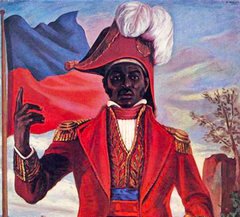Oxford University Press staff love to read so we’ve gathered together a few recommendations from what our staff read this year (although maybe not published this year).
Reticence by Jean-Philippe Toussaint
“Jean-Philippe Toussaint is likely still best known for his 1985 debut novel, The Bathroom, but he’s been churning out short, idiosyncratic and generally brilliant books every few years since then (most of them published in translation by Dalkey Archive). The novels tend to be snappy, existential, claustrophobic and yet hilariouss; it adds up to a flavor that’s unique to Toussaint. This year’s Reticence is one of his best: it follows an unnamed narrator as he searches for — and avoids — his friend Biaggi, encountering ominous portents and growing more and more suspicious. The book manages to both skewer the detective genre and meditate on the nature of paranoia, all the while serving up a generous helping of slapstick.
–Owen Keiter, Publicity Assistant
Robinson Alone by Kathleen Rooney
“This is a moving and evocative novel in verse about a young writer making his way through the United States in the middle of the 20th century. Inspired by four poems written by the nearly forgotten Weldon Kees, whose work is published by the University of Nebraska Press, Rooney fleshes out Kees’s character, Robinson, offering us his letters, humor, and heartbreak, with an eerie facility with period detail, from his days working for Time Magazine in NYC in the 1950’s to ads for shaving cream. Think Portrait of the Artist as a Young Man meets Mad Men. Read it!”
–Jeremy Wang-Iverson, Senior Publicist
The Mill on the Floss by George Eliot
“By the “Best Book of 2012,” you mean the best of 1860, right? The Mill on the Floss is my page-turner of the year. George Eliot’s wit and biting observations offer insight into 19th century British society and gender relations that will leave you half-smirking, half-disgruntled.”
–Alana Podolsky, Publicity Assistant
Bring Up the Bodies by Hilary Mantel
“I didn’t get a chance to read Wolf Hall before starting Bring Up the Bodies, and as Hilary Mantel has made a clean sweep of every literary award I wasn’t sure what to expect. (Awards aren’t often good indicators for my own enjoyment.) I’m also slightly apprehensive about historical novels after a run of authors who like to show off their knowledge in what they mistakenly think is an unobtrusive way. (Oh really, three pages on threshing methods of the 1860s with no impact on the story. I won’t be reading this anymore.) Tudor history is an area of endless study, but Hilary Mantel’s exhaustive research is integrated seamlessly into the narrative. Jane Seymour — that mute queen — has machinations all her own, and Thomas More, a man who was the British government for many years, is seen desperately trying to keep his place secure. A riveting read. ”
–Alice Northover, Social Media Manager
Oxford University Press staff like to spend their holidays reading.
Subscribe to the OUPblog via email or RSS.
The post OUP staff pick the best adult books of 2012 appeared first on OUPblog.




